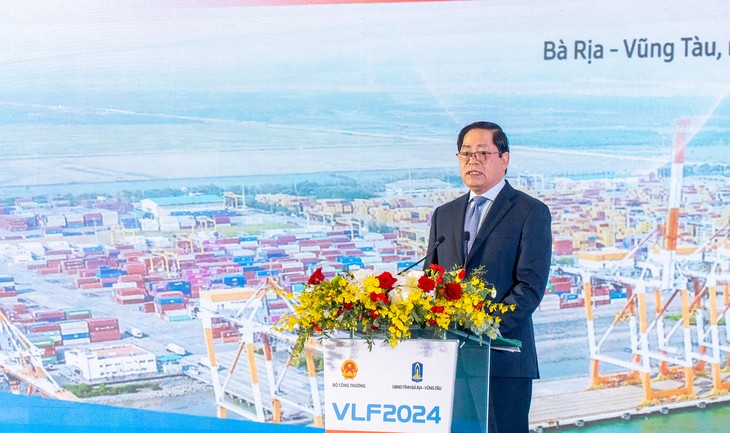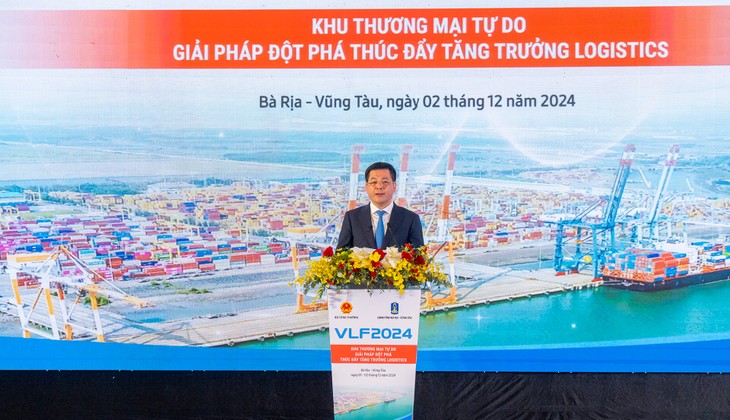(VOVWORLD) - Vietnam’s logistics industry has grown 14-16% to approximately 40-42 billion USD per year. To promote logistics services, Vietnam encourages investment in Free Trade Zones with open and attractive policies and mechanisms.
 Pham Viet Thanh, Secretary of the Party Committee of Ba Ria-Vung Tau province (photo: baobariavungtau.com.vn) Pham Viet Thanh, Secretary of the Party Committee of Ba Ria-Vung Tau province (photo: baobariavungtau.com.vn) |
At the Vietnam Logistics Forum in Ba Ria-Vung Tau province on Monday, participants said Vietnam’s logistics sector has not developed on a par with its potential and advantages. The cost of logistics remains high, while competitiveness is low. A shortage of human resources, particularly high-quality human resources, and unconnected infrastructure are drags on the growth of the logistics sector.
The forum’s theme “Free trade zones – breakthrough solutions for logistics development” conveys the government’s intent to attract and encourage investment in free trade zones with feasible, open, attractive mechanisms.
Pham Viet Thanh, Secretary of the Party Committee of Ba Ria-Vung Tau province, said a free trade zone associated with the seaport in the Cai Mep Ha area is a strategic step toward completing the logistics infrastructure of the southeastern region. The connection of Long Thanh International Airport and the Cai Mep-Thi Vai deep-water seaport will create a strong competitive advantage for Vietnam.
 Minister of Industry and Trade Nguyen Hong Dien (photo: baobariavungtau.com.vn) Minister of Industry and Trade Nguyen Hong Dien (photo: baobariavungtau.com.vn) |
Minister of Industry and Trade Nguyen Hong Dien said free trade zones are an important competitive advantage and an effective tool for maximizing the benefits of integration. With a strategic geographical location and many deep-water seaports, international airports, roads, and railways connecting it to other countries, Vietnam has favorable conditions for building large-scale, modern free trade zones.
The Ministry of Industry and Trade has submitted to the Prime Minister a draft strategy for developing Vietnam's logistics services in the 2025-2035 period, with a vision to 2050, which recommends coordinated solutions for achieving the goal of making Vietnam a strong country in logistics to support national industrialization and modernization.
According to the World Bank, Vietnam ranks 43rd of 155 countries in logistics efficiency and is among the top 5 ASEAN countries. Standard Chartered forecasts that Vietnam will be one of the main contributors to global trade growth, with export turnover expected to be 618 billion USD by 2030 with an annual growth rate of 7%. Import turnover by 2030 is expected to reach 578 billion USD, an average annual increase of 6.9%. Vietnam is focused on developing underground space, maritime space, and outer space to create conditions for logistics infrastructure to prosper.